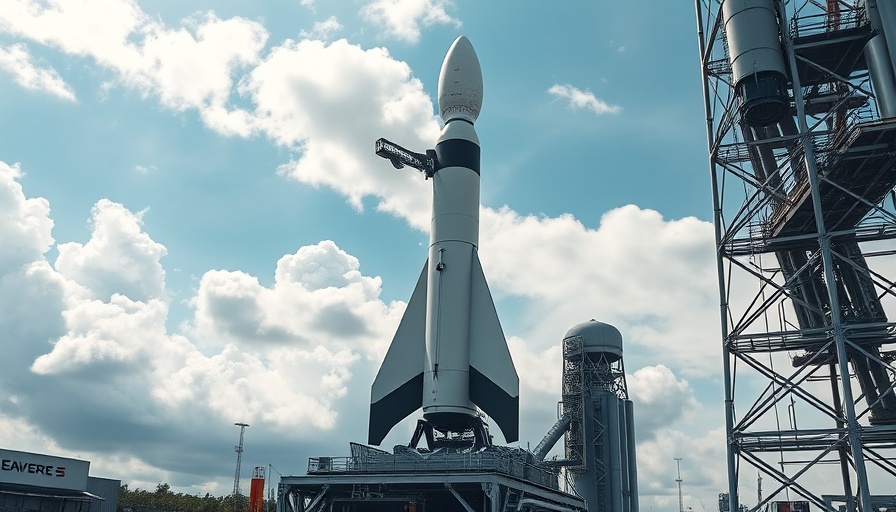
SpaceX and NASA: A New Leap in Private Spaceflight
On June 19, 2025, a new era for private space travel may unfold as SpaceX and NASA prepare for the launch of the Ax-4 mission to the International Space Station (ISS). Recently delayed due to leaks in the Falcon 9 rocket and the station’s Zvezda module, the mission exemplifies not only the technological advancements in space exploration but also the fragility and complexity of maintaining the structures that support human life in orbit.
Understanding the Delays: What Went Wrong?
The Ax-4 mission, Axiom Space’s fourth crewed flight, initially aimed for liftoff on June 11 but was postponed due to a liquid oxygen leak discovered in the Falcon 9 booster. Following this, another hitch arose when cosmonauts on the ISS detected a new pressure anomaly in the Zvezda module, which has had ongoing leakage issues since 2019. With safety as a priority, both NASA and Axiom decided to postpone the launch indefinitely, marking the sensitive nature of space travel and the necessity of meticulous preparations.
Leaky Modules and Rockets: Why Repairs Matter
Recent repairs conducted on the ISS's Zvezda module showed promise as NASA reported stable pressure readings in the transfer tunnel, suggesting that previous leaks may have been sealed. This could indicate an improvement in the module's integrity, which is vital for the safety of incoming crews. In contrast, the Falcon 9’s repairs were more straightforward. SpaceX’s vice president noted that the rocket had not been fully refurbished after a previous launch. Recognizing and rectifying such issues is crucial for SpaceX as it continues to pave the way for commercial space travel and exploration.
Looking Ahead: The Future of Space Innovation
As we approach the revised launch date, the Ax-4 mission stands as a testament to the ongoing innovations in the field of space exploration. Each successful transition from problem detection to resolution not only solidifies the reputation of engaging companies like SpaceX and Axiom but also raises public interest in private spaceflight. The actions taken reflect a growing recognition of the importance of maintaining high safety standards as commercial ventures venture into an arena once reserved for government agencies.
The Broader Impact: Implications for Space Exploration
The journey to the ISS is now a pathway to understanding broader societal implications of space travel. As private companies begin to play vital roles in sending astronauts and research payloads into space, the balance of responsibility in managing potential risks and fostering innovation has never been more pertinent. Ax-4 will not only deliver astronauts to the ISS but may also solidify frameworks for future missions, making space more accessible for research and commercial purposes.
Takeaway: The Growing Role of Private Space Companies
This upcoming launch encapsulates the transition we are witnessing from exclusive government-led initiatives to collaborative projects with private industry, underscoring a future where space exploration could become a shared adventure between multiple stakeholders. As the countdown to June 19 continues, the excitement around innovations and the implications for future projects can be felt across the space community and beyond.
 Add Row
Add Row  Add
Add 




Write A Comment